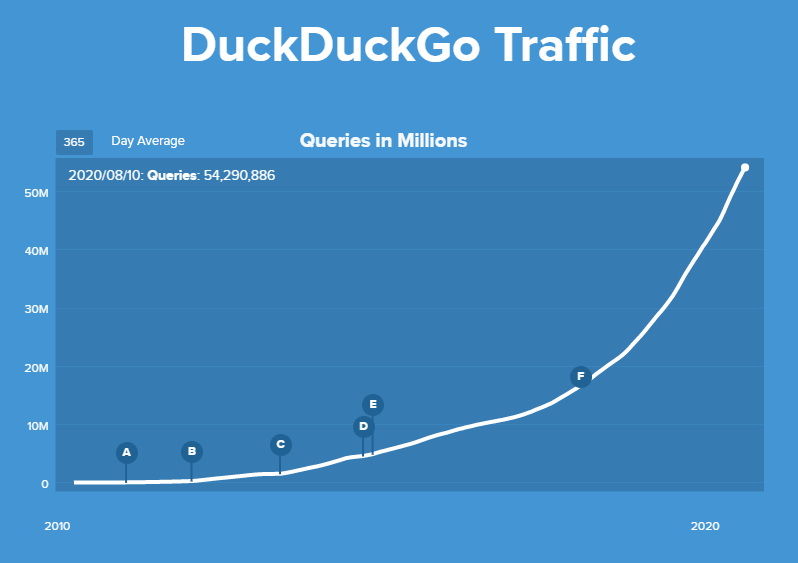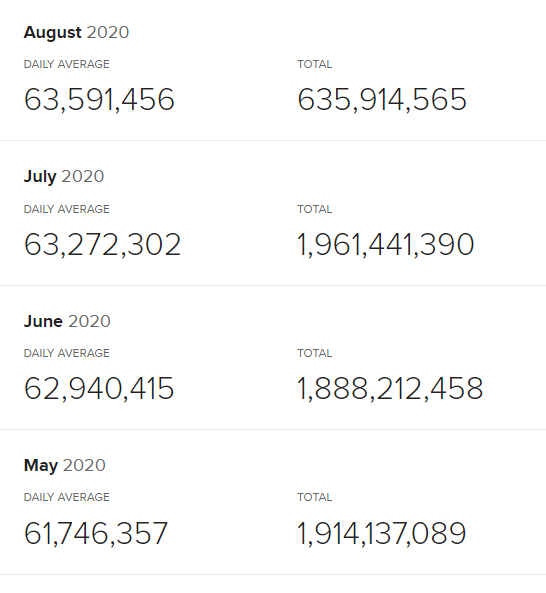What is DuckDuckGo and Do I Need to Have an SEO Strategy for it?

DuckDuckGo is an internet search engine that emphasizes protecting searchers’ privacy and avoiding the filter bubble of personalized search results.
With today’s privacy focussed landscape it was only a matter of time until a service arrived that responded to this need. With DuckDuckGo’s emphasis on protecting privacy there are a few questions that you might have regarding their services. I hope to explore some of the more basic questions and ultimately answer the question:
Do I need to have an SEO strategy for DuckDuckGo?
Let’s dive into the data.
How Does DuckDuckGo Serve Up Results?
DuckDuckGo’s results are a compilation of “over 400” sources, including Yahoo! Search BOSS, Wolfram Alpha, Bing, Yandex, its own web crawler (the DuckDuckBot) and others. It also uses data from crowdsourced sites, including Wikipedia, to populate knowledge panel boxes to the right of the results.
If you are familiar with how search engines work you know that they have spiders or bots that crawl every accessible webpage and index this information for later use. They have algorithms that sift through these indexes and serve up the best results. DuckDuckGo works this same way but emphasizes privacy throughout the whole search process.
How Does DuckDuckGo Ensure Quality?
Gabriel Weinberg—the creator of DuckDuckGo—has refined the quality of his search engine results by deleting search results for companies he believes are content mills, such as Demand Media’s eHow, which publishes 4000 articles per day produced by paid freelance writers, which Weinberg says is “low-quality content designed specifically to rank highly in Google’s search index”.
Because of this, getting “high quality” links from open source websites like Wikipedia and other wikis are of highest import for this search engine.
How Does DuckDuckGo Make Money?
DuckDuckGo earns revenue by serving ads from the Yahoo-Bing search alliance network and through affiliate relationships with Amazon and eBay.
“Since we don’t collect that information, search ads on DuckDuckGo are based on the search results page you are viewing, not on you as a person.” – DuckDuckGo Homepage
This makes your paid strategy slightly different from what you would see with a Google Ad campaign that tracks data from query to query. Consider the highest-intent keywords when optimizing your DuckDuckGo ad campaign if you decide it’s worth your time.
How Many Searches Happen on DuckDuckGo?
DuckDuckGo has slightly over 1% of all mobile traffic queries reported in Q1 of 2019 and with their numbers doubling over that time it’s safe to say that it’s closer to 2% now.
While these numbers don’t seem that large, take a look at how many queries they are getting each day:

In an effort to be transparent with data, DuckDuckGo provides what information they can in queries. They don’t track users so they actually don’t know how many people use their platform.

As you can see this number is growing month over month. If this popularity increases we may see more and more funding come through other than the $3 million in 2011 and $10 million in 2018.
How do I Get Local Results with DuckDuckGo?
The nature of data privacy built into DuckDuckGo makes local SEO strategy significantly different. The search engine can only approximate the location information through a GEO:IP lookup. So if you are using a VPN you can expect only results from where that IP is located. To combat this you will need to include geo-locational information in your meta and descriptions along with common abbreviations for your location so DuckDuckGo can properly display your results.
A search like, “restaurants near me” in DuckDuckGo can give only approximate results if the business doesn’t make a specific effort to describe their location in this manner.
Do I need to have an SEO strategy for DuckDuckGo?
For the vast majority of businesses the answer to this question is no.
If your business is dealing with data privacy or caters to an audience that views data privacy as a high selling point, then pursuing this avenue could be worth your time. So often in the SEO industry the answer to questions is “yes, but..” or “no, but..” and this case is no different.
Exploring all avenues and making a cost-analysis based decision could mean that you go down this route BUT if you are following a quality SEO strategy that works for Google a lot of that effort will transfer over to DuckDuckGo. Create quality links (open-source sites), have a robust keyword strategy, and make sure your onsite optimizations are tip-top shape.
At Boostability we can help with a quality SEO strategy and even investigate to see if DuckDuckGo is worth your time. Contact us right here for your free website analysis.

